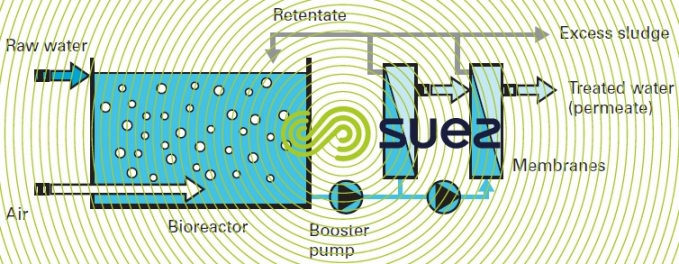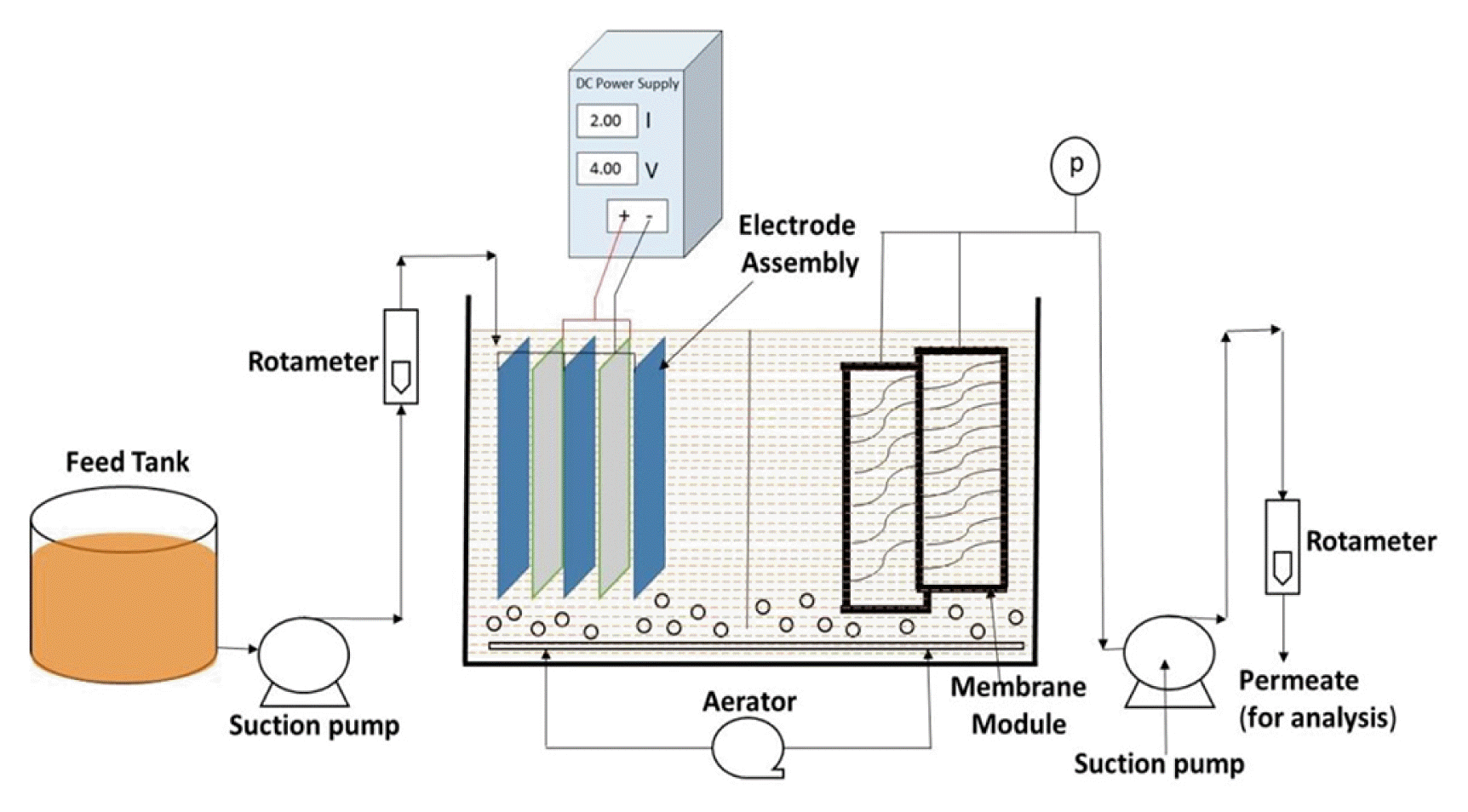How Membrane Bioreactor Contributes to the Reduction of Energy Consumption in Water Treatment
How Membrane Bioreactor Contributes to the Reduction of Energy Consumption in Water Treatment
Blog Article
The Benefits of Membrane Layer Bioreactors in Lasting Wastewater Management
Membrane bioreactors (MBRs) represent a crucial innovation in lasting wastewater administration, efficiently merging biological treatment with advanced membrane filtering technology. This combination not only boosts effluent quality by effectively eliminating contaminants however also opens avenues for water reuse in various applications, thus resolving the pressing requirement for source preservation. The small style of MBRs contributes to substantial decreases in environmental influence and operational expenses. As the demand for sustainable options heightens, exploring the multifaceted benefits of MBRs may expose unanticipated effects for the future of wastewater treatment systems.
Summary of Membrane Bioreactors
Membrane bioreactors (MBRs) represent a substantial innovation in wastewater treatment technology, incorporating organic degradation with membrane layer filtration to enhance the efficiency of the therapy procedure. This cutting-edge system integrates the advantages of traditional turned on sludge procedures with membrane layer innovation, permitting improved solid-liquid splitting up. MBRs use semi-permeable membrane layers to different treated water from biomass, leading to high-quality effluent that can be reused or securely released into the atmosphere.
The operational design of MBRs commonly entails a bioreactor where bacteria damage down organic matter, adhered to by a membrane layer device that filters the combined alcohol. This arrangement not just reduces the footprint of the treatment facility but additionally permits greater biomass focus and decreased hydraulic retention times. Moreover, MBRs are qualified of dealing with a wider series of contaminants, including microorganisms and nutrients, making them suitable for different applications, from municipal wastewater therapy to industrial effluent handling.
The integration of MBRs into wastewater administration systems is indicative of a growing fad towards lasting and effective practices in environmental design. Their capability to produce high-quality effluent while minimizing area needs positions MBR innovation as a principal in contemporary wastewater therapy solutions.
Boosted Effluent High Quality

The membrane purification process acts as a physical barrier, making it possible for the retention of microorganisms and particulate matter, which adds to a more clear and cleaner effluent (Membrane Bioreactor). Additionally, MBRs operate at higher biomass concentrations than conventional turned on sludge systems, advertising much more efficient biodegradation of pollutants. This brings about a decrease in biochemical oxygen need (FIGURE) and total suspended solids (TSS) degrees in the final effluent
Furthermore, MBRs demonstrate exceptional efficiency in treating challenging wastewater compositions, such as commercial effluents and wastewater with high nutrient lots. As a result, the effluent generated is often of higher top quality, enabling more adaptable disposal choices and decreased ecological effect. Eventually, the boosted effluent top quality achieved through MBR technology highlights its essential function ahead of time lasting wastewater monitoring methods.
Water Reuse Opportunities
The high-grade effluent generated by membrane bioreactors (MBRs) opens up substantial possibilities for water reuse in different applications. MBRs efficiently get rid of contaminants, consisting of pathogens, put on hold solids, and raw material, leading to treated water that meets or exceeds regulative criteria for reuse. This quality permits the execution of water recycling campaigns throughout varied fields.
One famous application is in farming, where dealt with wastewater can be used for irrigation, advertising sustainable farming practices while saving freshwater sources. In addition, MBR-treated effluent can be used for industrial processes such as air conditioning, cleaning, and as a procedure water source, dramatically lowering the need for drinkable water in these operations.
In urban atmospheres, MBRs assist in the usage of reclaimed water for landscape watering, bathroom flushing, and various other non-potable usages, contributing to the general durability of supply of water look at these guys systems. The integration of MBR modern technology in decentralized systems help in handling localized water demands, specifically in water-scarce areas.
Reduced Environmental Effect
Exactly how can the fostering of membrane layer bioreactors (MBRs) contribute to a minimized environmental effect in wastewater management? MBRs significantly improve the therapy effectiveness of wastewater while decreasing eco-friendly disruptions. Membrane Bioreactor.
Additionally, MBRs run at lower hydraulic retention times compared to conventional systems, leading to smaller therapy plant impacts. This compact style decreases land use, consequently maintaining natural environments and biodiversity. advice The process also produces much less sludge than traditional techniques, minimizing disposal obstacles and decreasing greenhouse gas emissions connected with sludge administration.
In addition, MBRs facilitate the healing of valuable resources, such as water and nutrients, contributing to a round economic climate. By allowing water reuse for watering or commercial procedures, MBRs help minimize freshwater scarcity, therefore advertising sustainable water make use of methods. Inevitably, the fostering of MBR technology represents a significant stride in the direction of reducing the environmental effect of wastewater monitoring systems.
Financial Advantages of MBRs

Furthermore, MBRs facilitate the manufacturing of high-quality effluent, which can be reused for various applications, such as agricultural watering and industrial procedures - Membrane Bioreactor. This reuse capacity can significantly lower water procurement prices, giving an economic motivation for markets encountering rigorous water regulations
The small design of MBR systems likewise leads to decreased land needs, which is especially beneficial in urban areas where realty is expensive. By minimizing room, towns and markets can save money on land procurement and maintenance expenses.
Moreover, MBRs often require less regular maintenance and have a longer life expectancy than typical systems, better adding to set you back financial savings. In summary, the economic advantages of MBRs-- varying from decreased functional expenses to land financial savings and effluent reuse-- make them an engaging choice for sustainable wastewater management, using both long-term and instant financial benefits.
Verdict
Additionally, MBRs add to minimized environmental effects with compact styles and lower sludge generation. Economic benefits further boost their viability, making MBRs an encouraging service for dealing with the challenges of wastewater therapy and promoting lasting resource monitoring.
Membrane bioreactors (MBRs) stand for a crucial advancement in lasting wastewater administration, properly combining biological therapy with advanced membrane layer filtering innovation.Membrane bioreactors (MBRs) stand for a considerable improvement in wastewater treatment technology, incorporating organic destruction with membrane layer filtering to enhance the efficiency of the therapy procedure.Accomplishing boosted effluent quality is one of the most substantial benefits of utilizing membrane bioreactors (MBRs) in wastewater therapy.In addition, MBRs show superb efficiency in treating difficult wastewater make-ups, such as industrial effluents and wastewater with high nutrient loads.Incorporating membrane bioreactors (MBRs) right into wastewater More about the author management not only reduces ecological effect yet likewise presents substantial financial benefits.
Report this page